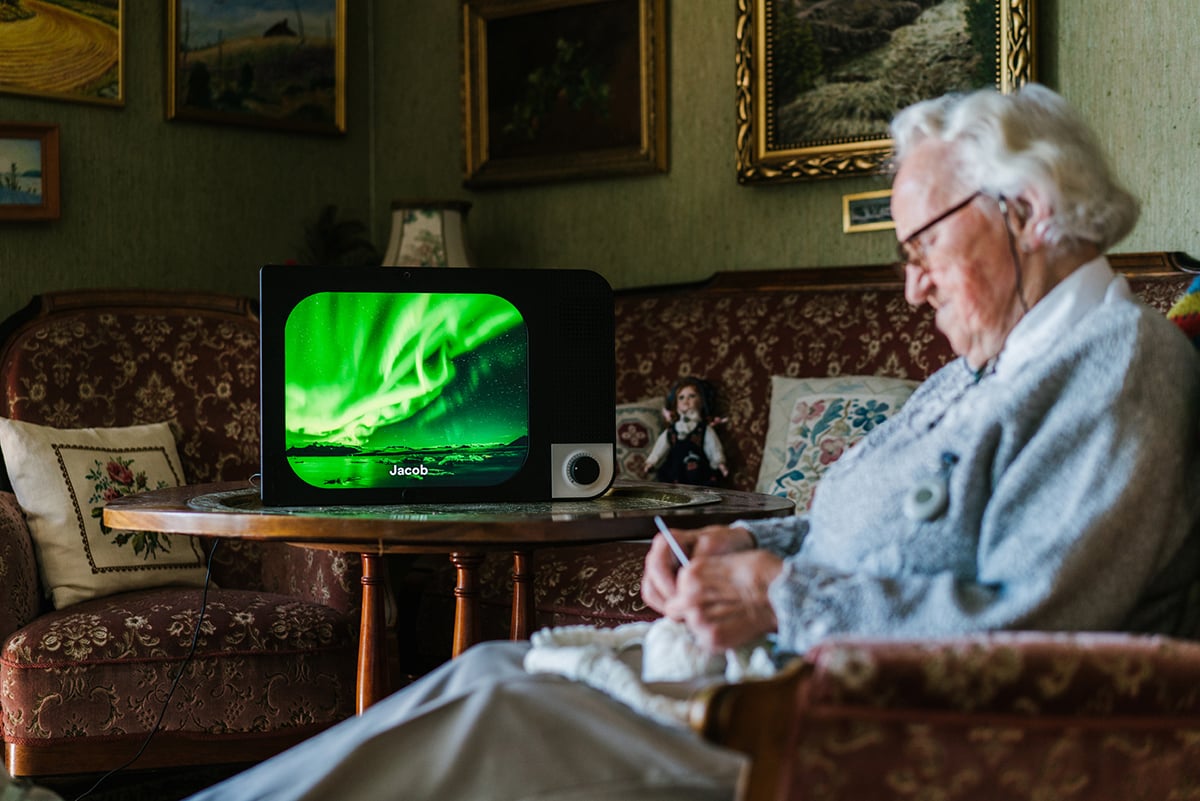
Photo credit: No Isolation, Estera Kluczenko
For many people waiting out the Covid-19 crisis from their homes, the sense of isolation and loneliness can be just as difficult to manage as their fears of the virus itself. To make matters worse, those most at risk of serious illness are often the most isolated—especially the elderly, who may not be familiar or comfortable with the technology that many younger people rely on to keep in touch from afar. But, as it so often does, Norway is helping to lead the way with an innovative approach to solving the issue.
In Norway, more than one in three people over age 67—an age group at especially high risk during the pandemic—live alone. Pair that with the fact that many older people have relatively small social circles and are likelier to have mobility issues or health concerns that make them more socially isolated to begin with, and it’s easy to see how the rigid constraints of the physical distancing era could take a toll on even the most resilient individuals.
Since well before the coronavirus pandemic began, a Norwegian company called No Isolation has been developing user-friendly technology designed to combat loneliness among elderly and vulnerable populations. The start-up company aims to bridge the technology gap between generations and make it easy for people to connect remotely without the need for smartphones or computer skills.
One of their offerings is a device called Komp, which looks a lot like an old-fashioned television—it features a screen and a single knob for adjusting the volume and turning the device on and off, with no username or password required. Friends and loved ones can connect to the device with a smartphone app to share photos and messages, or to connect for two-way video calls in real time.
Other companies around the world are developing similar technologies in a growing niche known as telepresence robots. Due to increased demand caused by the coronavirus, the industry is expected to grow by as much as 35 percent this year as more people seek out new ways to stay connected with older relatives during social distancing and quarantine.
